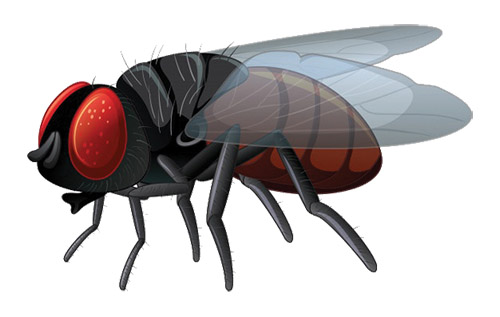
In last week’s parsha, we read that a census would be taken by having the Jewish people donate a half shekel each. This would prevent a plague from taking place (Shemot 30:12.) Rashi explained that actually counting people, such as in the days of King David, would cause the influence of an evil eye to descend upon the people and would lead to a plague.
The Torah is replete with mentions of plagues, their causes and how to relieve them. There was the plague of darkness that preceded the exodus. There was the plague of Passover that could be prevented by smearing lambs’ blood on the doorpost. There was also the plague that took place after the sin of the golden calf, just to name a few.
The Jews were blamed for the Black Plague in the 14th century. They did not seem to suffer as much as the general population. This was probably due to their maintaining higher standards of cleanliness, washing their hands before eating and using the mikvah.
We have had modern epidemics that killed scores of individuals and were considered plagues. The Spanish Flu of 1918 affected one third of the world’s population and was considered the deadliest plague ever recorded. Estimates are that between 50 to 100 million people died that year. More modern epidemics have included the Polio epidemic, the swine flu epidemic, the ebola epidemic, the bird flu epidemic, HIV and the SARS epidemic.
Phillip Roth, the author, wrote a novel called “Nemesis” that focused on the impact polio had on the Jewish children of Newark, New Jersey, in 1944. Roth examines some of the central themes of pestilence: fear, panic, anger, guilt, bewilderment, suffering and pain. His central character also faces a spiritual crisis, asking himself why God would allow innocent children to die of polio.
We are currently facing the beginning of a modern plague called coronavirus. Although governments are moving quickly to contain the rate of infection, the death rate in America is relatively low, especially as compared to the tens of thousands who are expected to die from the common flu virus. Still, we are again faced with fear, panic, bewilderment, suffering and pain.
The Gemara in Taanis (21b) speaks about the plagues of old and what the criteria was to classify an outbreak as a plague. R’ Yehuda was prescient to note that viruses could spread from animals to humans. The Gemara in Baba Kama (60a) advises that, when a plague is spreading, it is prudent for individuals to stay indoors and self-quarantine themselves. They even advised people to stay away from synagogues when an epidemic was raging in town. Meritorious people could stave off the spread of a plague, and communal fasting was often called for in such circumstances.
R’ Brahm Weinberg of the KMS synagogue in Silver Spring, Maryland, noted how humbling it was to realize that, despite our feeling in control of our lives and the world at large, the coronavirus could bring the world to a screeching halt. It makes us realize that we are not completely in control and that we have to turn to Hashem who ultimately has the last say. In a similar vein, the sages tell us that we live in our temporary sukkahs once a year to remind ourselves that we are not masters of our destinies and that we need to remember that there are outside forces that are often at play.
R’ Joey Haber made a similar point when he discussed how the coronavirus began. A random infected bat had secreted its juices into the meat of an animal that was eaten by a random Chinese man. This brought the whole world to its knees as we now are witnessing. The stock markets are falling and people are panicking, changing their day-to-day behaviors.
Similarly, we can trace the history of the Jewish people to a random fly. We all know the story of how Joseph was sold into slavery by his brothers. He ended up in jail on fabricated charges and happened to be introduced to the Pharaoh’s sommelier (wine butler). This butler had been jailed himself for having served Pharaoh a cup of wine into which a fly had fallen. When he had a dream, Joseph was able to interpret it correctly. The butler later told Pharaoh about Joseph’s uncanny ability to interpret dreams. Pharaoh had his own dream interpreted and, later that day, Joseph found himself appointed viceroy of all Egypt. He brought down his family. They stayed in Egypt in bondage for 210 years and became the Jewish nation. All because of a random fly.
The point of all these stories is that we do not run the world all by ourselves. There are forces greater than ourselves at play. A fly can give birth to a nation. A bat can bring the world to its knees. When it comes to epidemics, we have to be prepared and do our part. We should follow Talmudic and CDC guidelines by staying away from individuals or countries that are adversely affected. We also need to realize that we need to each be as righteous as possible and pray for this particular plague to end soon. May Hashem bless us so that, just as was the case with many of the other epidemics, this one comes to a quick end with minimal damage to people everywhere.
Rabbi Dr. Avi Kuperberg is a forensic, clinical psychologist in private practice. He is president of the Chai Riders Motorcycle Club of NY/NJ. He leads the Summit Avenue Shabbos Gemara shiur and minyan in Fair Lawn, NJ, and is a member of the International Rabbinical Society. He can be reached at [email protected].









